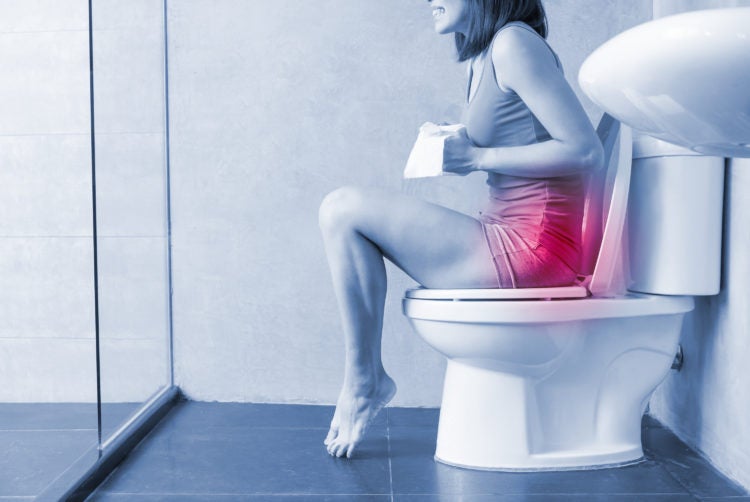-
What Women Need to Know About Fecal Incontinence

About 18 million people in the US suffer from fecal incontinence. Women are most at risk, because of the potential damage to muscles and nerves in the anal sphincter and rectum during childbirth. Because fecal incontinence can cause anxiety and embarrassment, causing women to avoid work and social situations, it’s important to see a urologist as soon as possible. With the help of a urologist, treatment is available to stop the symptoms of fecal incontinence and get back to doing your normal activities.
What exactly is fecal incontinence?
Fecal incontinence refers to the loss of bowel control. It often occurs as the result of sphincter muscle damage or nerve damage in the rectum or sphincter after surgery or childbirth. This kind of nerve and muscle damage can also occur with diabetes, stroke, multiple sclerosis, and chronic constipation. Treatments for inflammatory bowel disease and cancer may also contribute to fecal incontinence. Pelvic floor dysfunction is a contributing cause for many women as well.
What are the symptoms?
Women who are suffering from fecal incontinence are unable to control the passage of liquid and solid stool. The amount of leakage may be minimal or severe. Some women experience occasional bouts of incontinence, while others deal with it during almost every bowel movement. Women with fecal incontinence may also more frequent bouts of diarrhea and constipation.
How is fecal incontinence diagnosed and treated?
There are several tests that your urologist may recommend to diagnose fecal incontinence, including anal manometry, which tests the tightness of the sphincter, anal electromyography, which tests the nerves in the rectum for damage, and ultrasounds to examine internal structures. Treatments depend on the cause but can include surgery, medications, and lifestyle interventions.
Don’t suffer in silence with fecal incontinence. The urologists at Urology Associates, P.C. provide compassionate care for women living with fecal incontinence to help them reclaim their confidence and their lives. Call (855) 901-1338 to schedule a treatment consultation for fecal incontinence in Nashville.
-
Treating Fecal Incontinence

Millions of Americans suffer from fecal incontinence . This urologic condition can be a humiliating experience for patients when it happens in public places. Remember that it’s a medical problem—not a character flaw. If you’ve ever lost bowel control, visit a urologist right away to get the medical treatment you need to regain your dignity and health. Your treatment plan will depend on the underlying cause of your condition.
Dietary Modifications
Fecal incontinence can be caused by constipation or diarrhea. If you’re experiencing diarrhea, your doctor can offer guidance on adding high-fiber foods to your diet. A fiber supplement might also be a good idea. If the problem is constipation, your doctor may recommend increasing your intake of water, as well as eating more high-fiber foods.
Medications
Medications can be another strategy for treating fecal incontinence caused by constipation or diarrhea. Patients with chronic constipation may be prescribed a bulk laxative or an injectable bulking agent. Otherwise, an anti-diarrheal drug can help.
Therapies
Before considering a surgical option, your doctor will likely recommend a therapeutic treatment to improve your control of the anal sphincter . One example is the use of biofeedback, which can help you learn how to strengthen the anal muscles and pelvic floor muscles. You’ll also increase your awareness of the urge to defecate, and work on contracting the muscles if you aren’t ready to defecate. Bowel training is another therapy that may be helpful. It involves getting on a defecation schedule to help you better control your bowel movements. If neither of those options has been helpful for you, your doctor may recommend surgery.
Surgeries
Surgery can help patients who suffer from fecal incontinence due to an underlying structural problem. In other words, if the cause is a damaged anal sphincter, the urologist can perform a sphincteroplasty to strengthen the muscle. Sometimes, a muscle from the inner thigh may be grafted to the area to improve control.
Fecal incontinence is one of the many conditions we can treat here at Urology Associates, P.C. We understand the limitations that incontinence can place on our patients in Tennessee, and we want to help you reclaim your quality of life. Call us today at (855) 901-1338.
Recent Posts
categories
- Uncategorized
- Bladder Cancer
- Women's Sexual Health
- MonaLisa Touch
- Urology
- Urologist
- Erectile Dysfunction
- Kidney Cancer
- Incontinence
- Prostate
- MonaLisa Touch Laser Treatment
- Kidney Stones
- Urinary Tract Infections
- Event
- Sexual Dysfunction
- Testicular Cancer
- Prostate Cancer
- Urology Surgery Center
- urinary incontinence
- vaginismus
- noncoital pain disorder
- Hypoactive Sexual Desire Disorder
- Infographic
- provenge
- Xofigo
- robotic surgery
- hormone replacement
- diabetes
- renal cell carcinoma
- pelvic pain
- hematuria
- sexual health
- chronic testicular pain
- premature ejaculation
- Men's Health Clinic
- Dr. Melvin Seard
- Interstitial Cystitis
- vasectomy
- overactive bladder
- vaginal atrophy
- nocturia
- bladder infections
- urethral strictures
- Acute Epididymitis
- low sex drive
- circumcision
- pelvic floor dysfunction
- Peyronie's Disease
- prostatitis
- female sexual dysfunction
- varicocele
- difficult urination
- low libido
- PSA levels
- male fertility
- penile prosthesis
- prostatic intraepithelial neoplasia
- male infertility
- estrogen levels
- nurse navigator
- stress urinary incontinence
- vaginal yeast infection
- elevated psa
- painful sex
- adult circumcision
- epididymitis
- OAB
- kidney infection
- penile cancer
- pelvic organ prolapse
- Vasectomy Reversal
- bone health
- cystectomies
- clinical trials
- bloody urine
- Advanced Therapeutic Center
- WISH MedSpa
- neurogenic bladder
- WISH Team
- prostate biopsies
- BPH
- fecal incontinence
- lithotripsy
- osteoporosis
- kidney cysts
